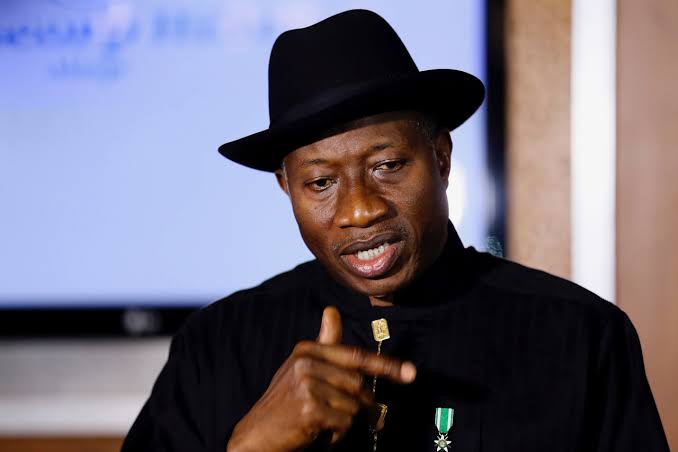
Former President Goodluck Jonathan says the Niger Delta has remained behind because leaders in the region often lack the political will to push through major development plans.
He made this known in Abuja yesterday during the public presentation of The Hidden Treasures, a new book written by former Delta State governorship aspirant, Chris Iyovwaye.
Jonathan, who was represented by his Chief of Staff, Mike Oghiadomhe, told the audience that constant political rivalry and the desperate chase for power have repeatedly slowed down growth in the oil-rich region.
He said several ideas that could have transformed the Niger Delta were abandoned due to personal ambitions.
He reminded the gathering of old regional plans that never took off. According to him, many of those initiatives were designed to open up the economy and build stronger infrastructure, but they ended up stranded because key actors could not agree on who should take the lead.
The former president pointed out that this pattern of competition is not new. He recalled past meetings involving South-South governors and federal lawmakers.
He explained that these sessions were meant to build a united regional front, but they collapsed once political interests got in the way.
The former head of state said, “A lot has been said in the past and even now. But when you don’t bring action to it, it will remain a potential. Deep inside here, we can have tonnes of gold, diamonds, and uranium. But it will remain zero until they are mined and brought out. This book corroborates what we have heard.”
Jonathan added that he witnessed these challenges firsthand while serving as deputy governor. He noted that at a point, everyone wanted to be a running mate to whoever would emerge as the next president, especially during the power transition after the Obasanjo era.
According to him, this unhealthy scramble killed the focus needed for genuine development.
He explained further, “In the past, when I was a deputy governor between 1999 and 2007, we had this same great commission… But action could not be taken because of competition for power and control of that commission. At one point, everybody in the Niger Delta wanted to be the vice president to an unknown president.”
Jonathan expressed confidence in the renewed efforts by South-South governors to revive old regional structures.
However, he warned that meetings alone cannot solve the problem. He emphasized that what the region needs now is clear political commitment and visible action.
He said only a strong development vehicle—one that identifies investment opportunities and markets them effectively—can unlock the region’s potential.
He also stressed that the Niger Delta should naturally host one of Nigeria’s largest seaports, considering its strategic position.
In his words, “Our advice on this occasion is to send a message to them that there is a need for action… The Niger Delta is supposed to be the economic hub of this country… There is a need to harness our resources at this point in time for proper and physical development.”
Also speaking at the event, former SDP presidential candidate Adewole Adebayo described the Niger Delta as one of the world’s most endowed regions that has suffered from poor leadership.
He argued that the wealth of the area is too enormous for the residents to remain impoverished.
He stated that the region has enough natural and human resources to create broad economic stability, adding that mismanagement over the years turned a prosperous land into a struggling zone.
Former Minister of Information, Prof Jerry Gana, also addressed the audience. He recalled his role in conceptualizing the Niger Delta Development Commission (NDDC) during the early days of the Obasanjo administration.
The former information minister expressed displeasure that the commission has not lived up to expectations.
According to him, the NDDC was expected to drive massive infrastructure development and transform the region into one of Nigeria’s most advanced economic corridors.
Instead, he said the commission has become known for small-scale projects and has departed from its original vision.
The Niger Delta has battled environmental pollution, abandoned projects, unemployment, and poor infrastructure for several decades.
Despite being Nigeria’s main revenue source, the region continues to suffer from weak governance, corruption scandals, and political interference—problems that have also plagued the NDDC since its creation.
